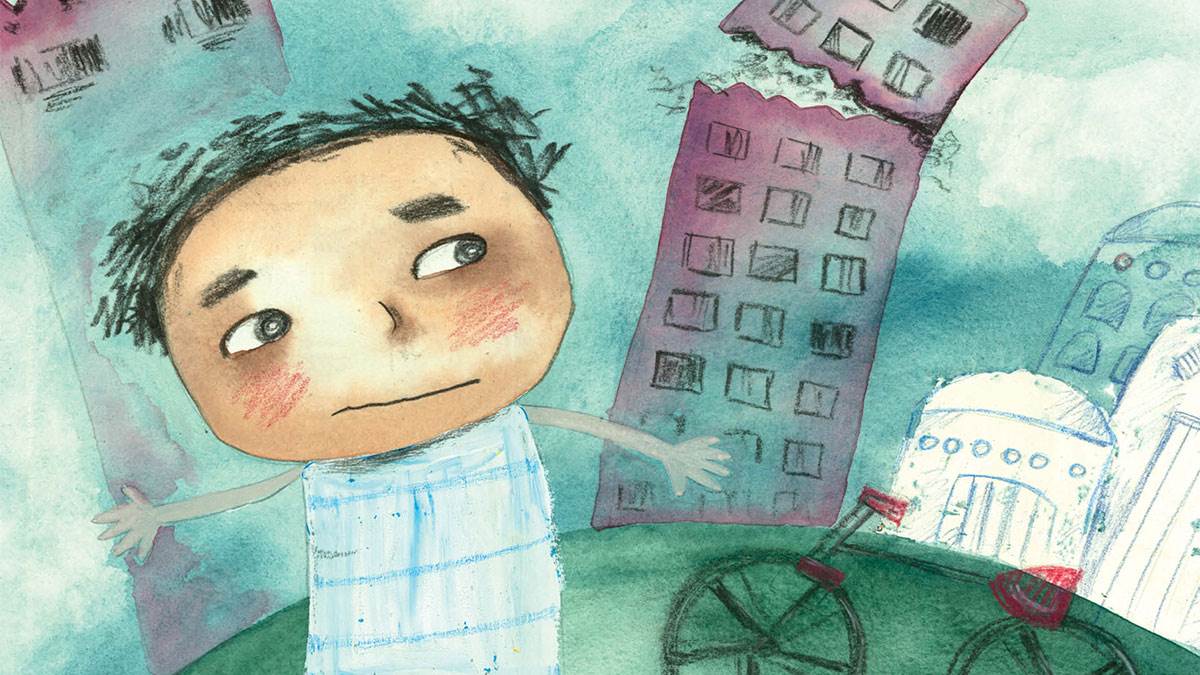A story from Syria: How books can bring children together
Published on: 29 Hydref 2018 Author: Nadine Kaadan
Nadine Kaadan is a Syrian children's book illustrator and writer. She wrote about the conflict to help Syrian children make sense of war. Now her book is reaching and touching children in the UK, too – in unexpected ways.

When the war started in Syria, I was in Damascus at the time. It was a complete shock for us. We couldn’t imagine that our beloved city would go through such a brutal situation. I was observing the children around me, especially my young niece, who suddenly felt things changing around her. She did not understand why Fridays (our weekend and her favourite day) suddenly became a "stuck-at-home day", week after week.
I found that all these changes in our lives were starting to reflect in my work, and especially in my illustrations. I felt the need to express the situation around me – that’s why I wrote Tomorrow.
Gentle approach to sad realities
The first time I did a reading of the book (in Lebanon's Shatila refugee camp), I didn’t know what to expect, and I was nervous. The result was overwhelming and unexpected: I felt, that for the first time, the children around me were able to relate their experiences and perhaps see themselves in a children’s book.
When I finished the reading, it seemed that they all wanted to tell me their own story of the war. One said: ‘We didn’t go to school because it was completely bombed out.' Another remembered weekend Fridays and the green hill where she used to go on picnics with her family. It was very sad and very beautiful.
When I moved to London and started to do readings of my stories in various venues, there was always the same question on my mind: should we protect children here from the sad realities of war? Or do we try to find a gentle and honest way to introduce them to a situation that many children their age are going through?
My experience in reading Tomorrow in the UK has proved the value in the latter.
Empathy and love for others
The first time I read Tomorrow was at a school visit in Littlehampton. I was very nervous and hesitant, but the teacher was encouraging. The children's reactions were beyond my expectations.
I learned that kids, after all, more or less know what’s going on in the world, and many of them already knew some things about the war in Syria. They showed an incredible amount of empathy and love for Syrian children, and asked so many great questions about what their lives were like.
What surprised me the most was that some kids were truly able to relate to the story on a personal level. For example, after reading the story, and explaining how Yazan couldn’t go to the park anymore because the war around him did not make it safe to go out, a little girl came up to me and said: ‘Your story happened to me!’
‘But how?’ I asked.
She answered, ‘We also wanted to go to the park last week and couldn’t because it was raining, so we were just stuck at home and I felt so sad, just like the boy in the story.’
Children are so sensitive and smart – they often relate to even the most challenging topics in their own beautiful ways.
Topics: Around the world, War, Refugees/asylum, Writing, Features






Add a comment